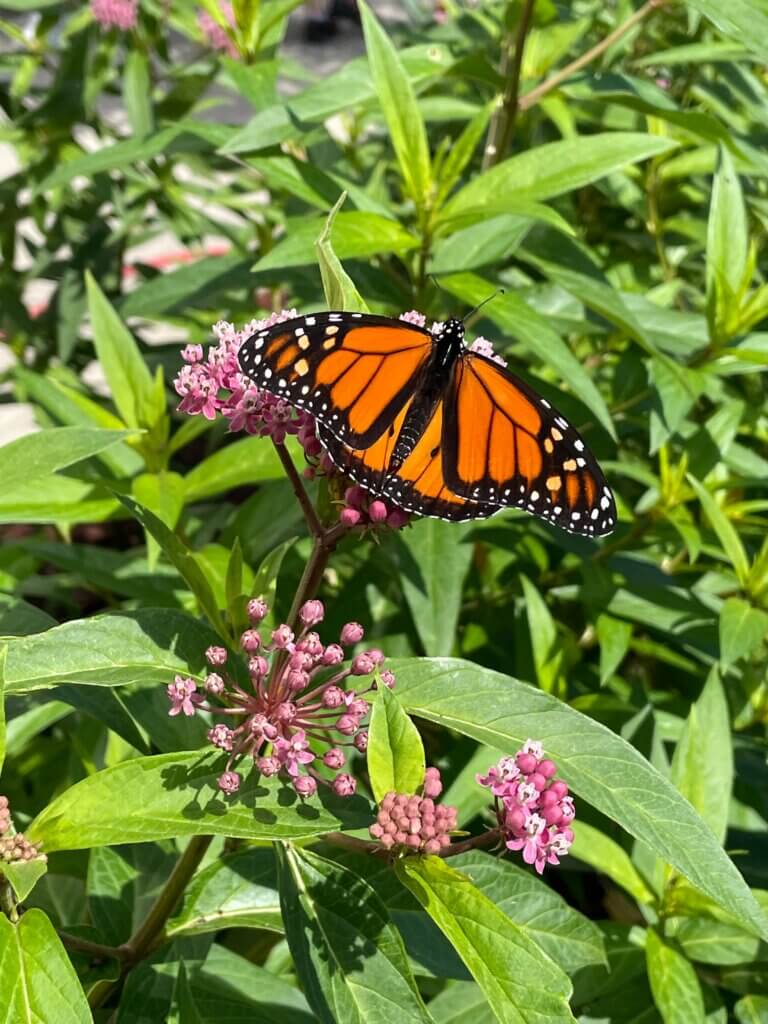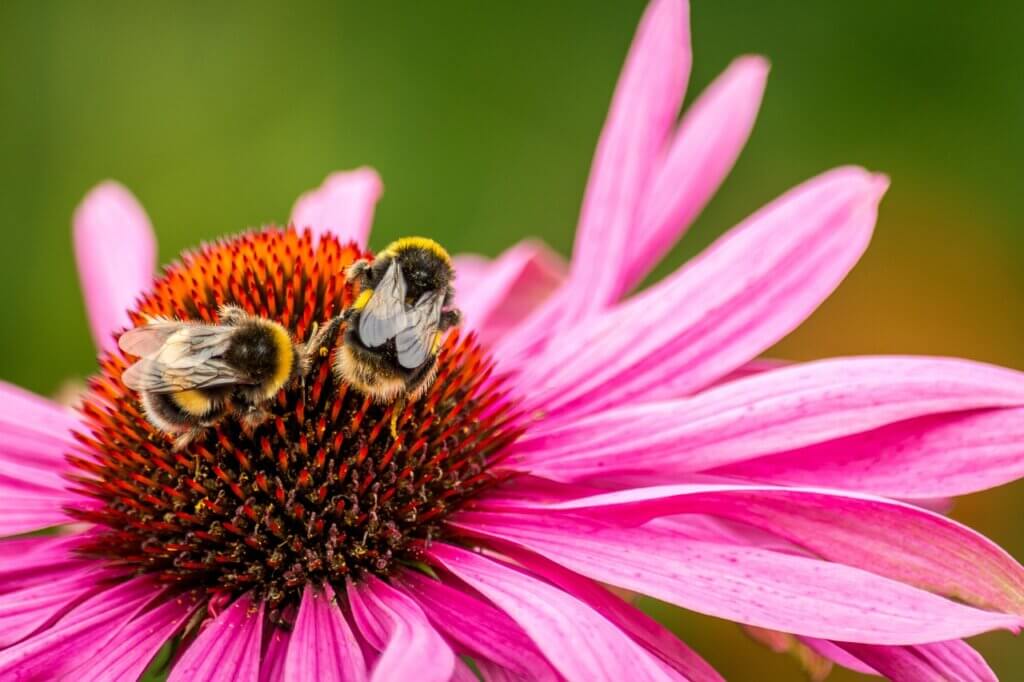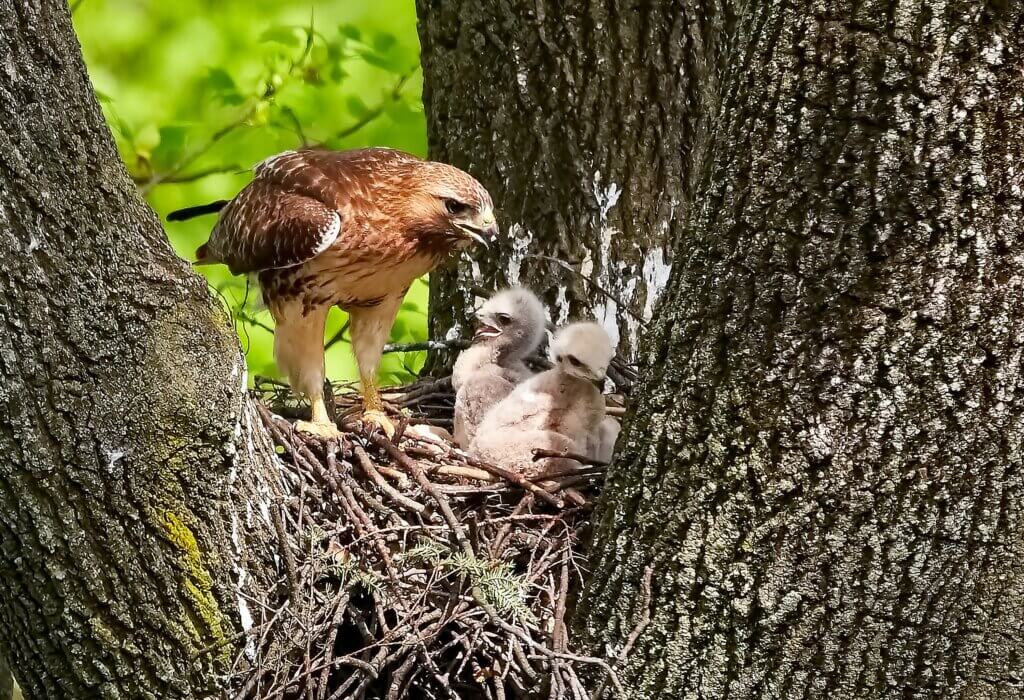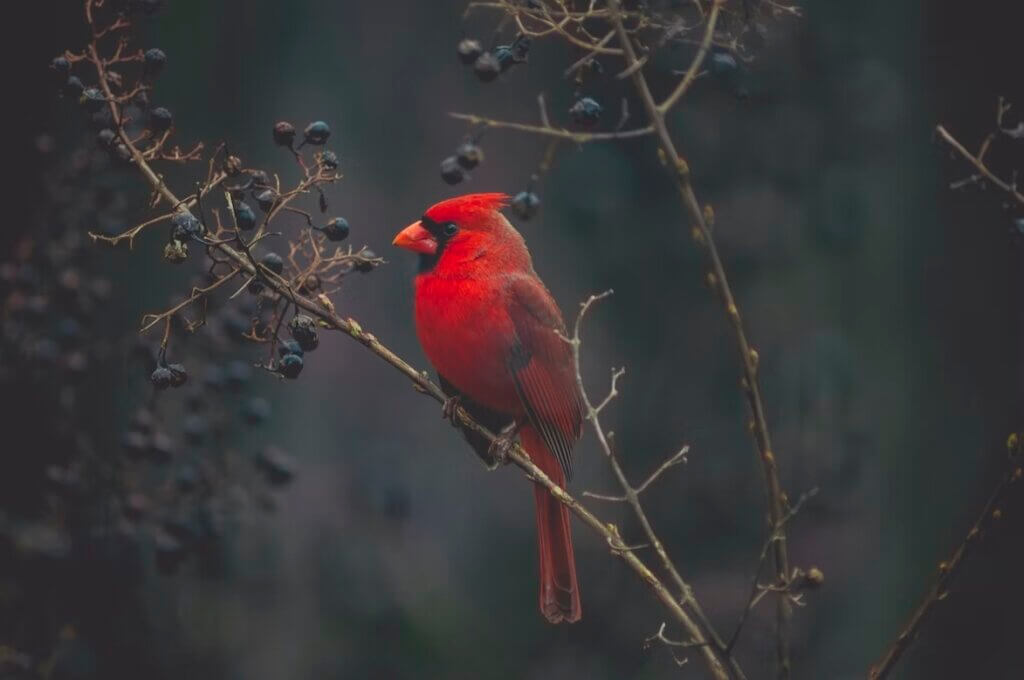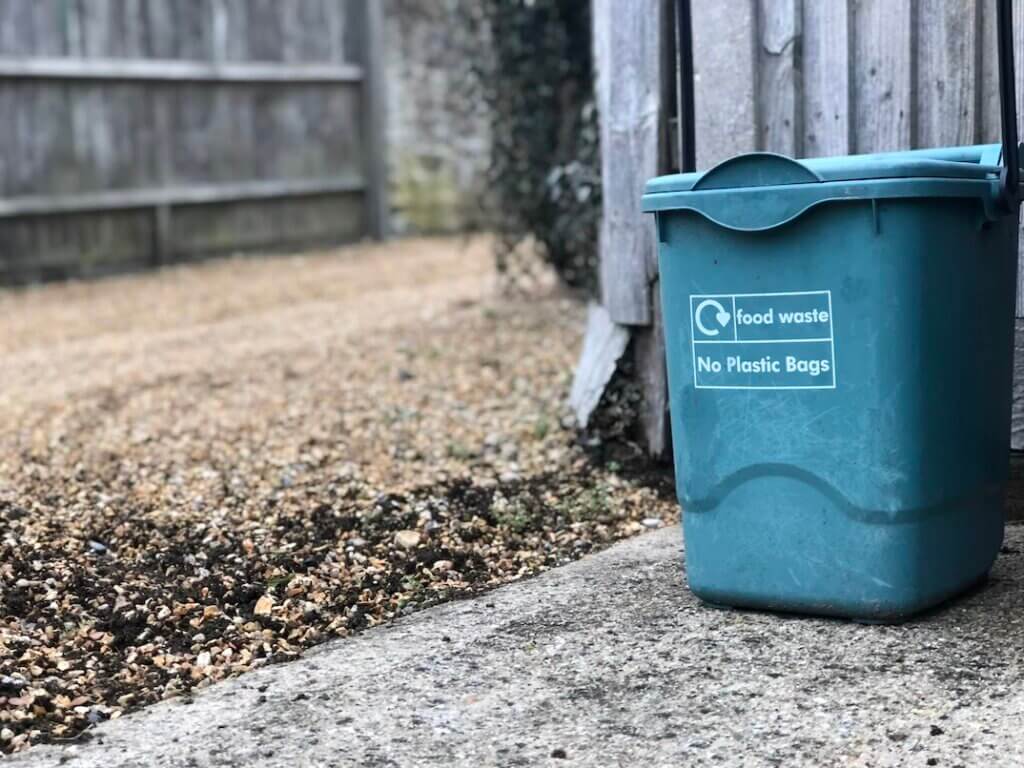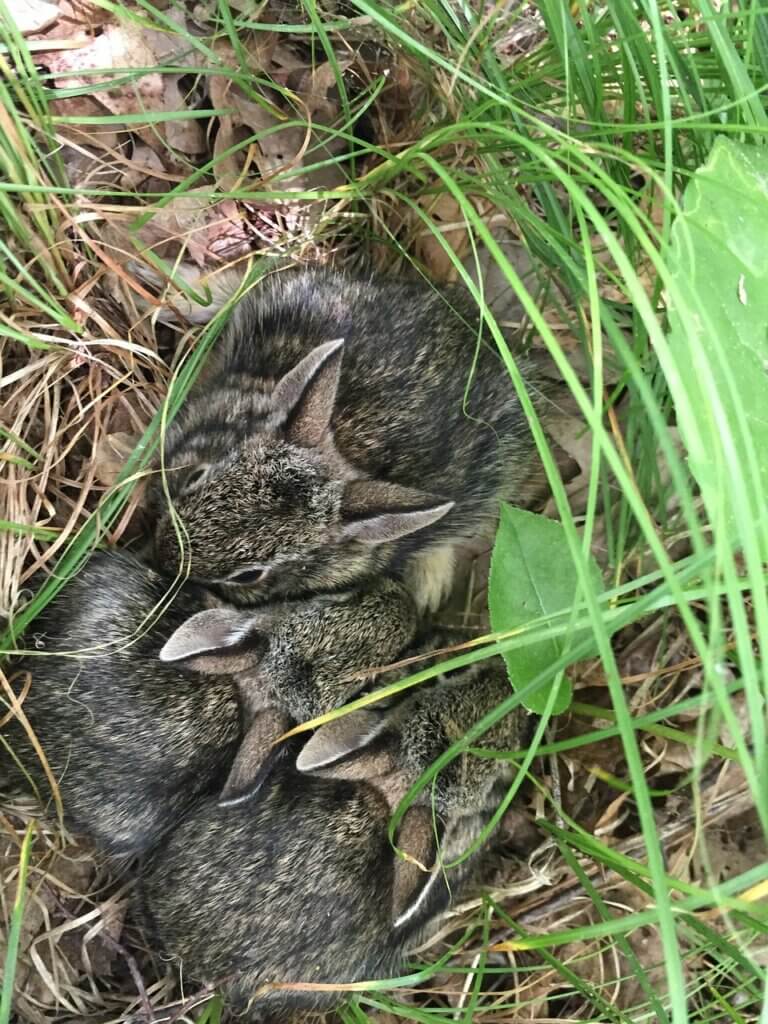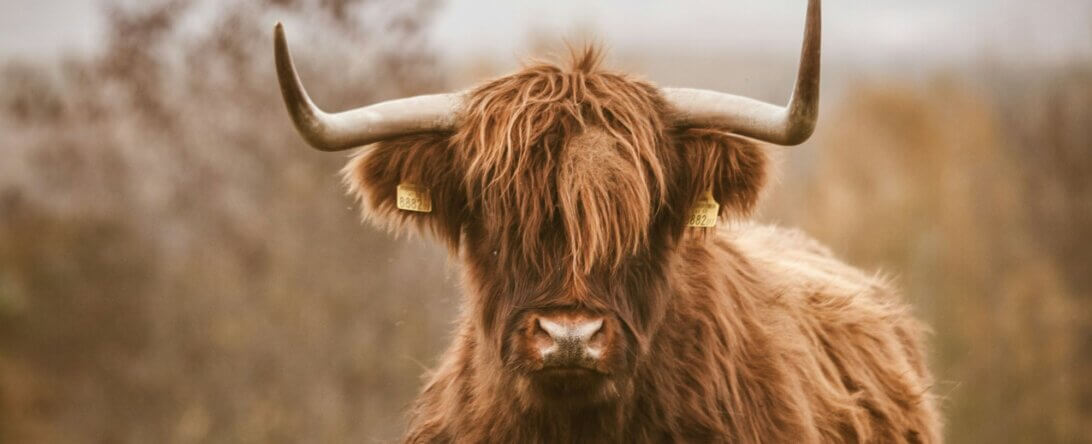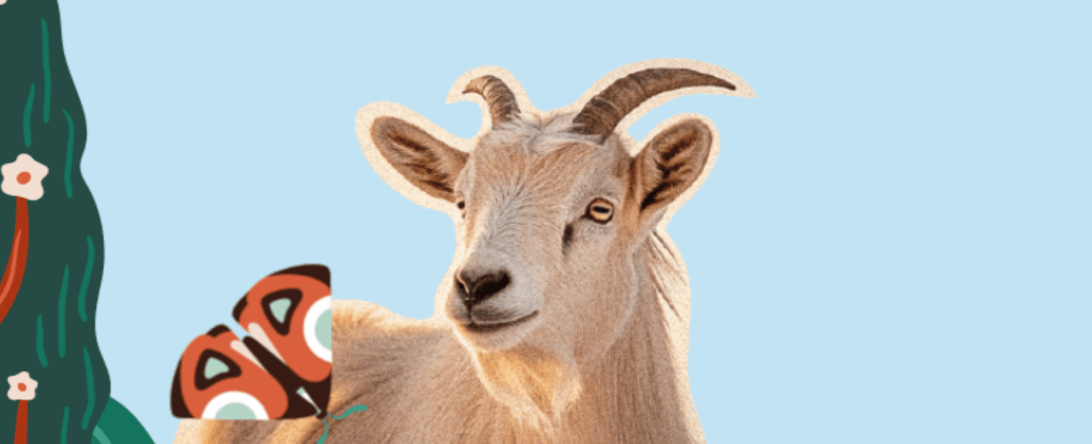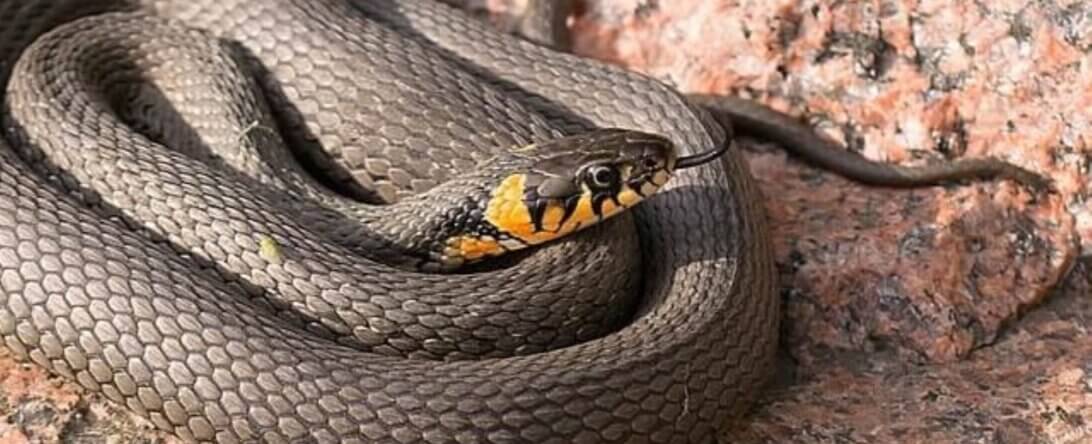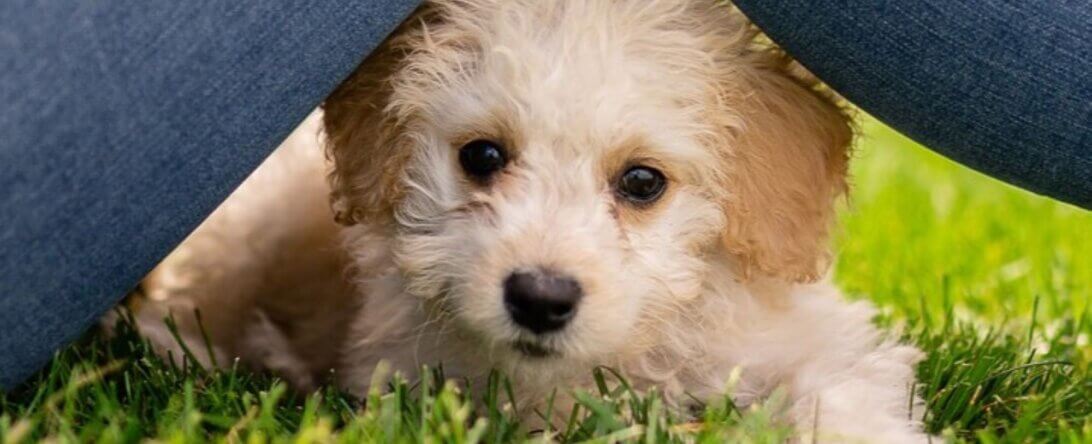How to Be Considerate to Animals in Your Yard
Whether you have a backyard, a balcony, or neither, we all have animal neighbors who depend on the local ecosystem for their survival. By supporting a habitat that caters to their needs, you can help them thrive and contribute to the overall health of that ecosystem.
OK, so we don’t all aspire to become master gardeners or even enjoy spending extended periods of time outdoors. 😅 But each of us can make a difference for animals like birds and insects with a minimal amount of effort (or a lot if that’s your thing).
Here are some ways you can help wildlife and the environment around your home.
Pollinator Support
Native plants provide essential food sources for pollinators, such as bees, butterflies, and hummingbirds. Choosing plants native to where you live helps maintain biodiversity in the ecosystem. These plants are best suited to the local climate conditions, and they’re a part of cultural heritage—including the identity of Indigenous communities. By cultivating a garden with a variety of native plants, you can attract and support pollinators, helping them find the nectar and pollen they need to survive. 🌼
If you have a small outdoor space, you could plant native flowers in containers or even ask your school to introduce native plants on its property by e-mailing your principal or school administrator to find out how you could work together to make this change.
To learn more about native plants in your area, search online for local native plant societies. Other online resources include government websites:
Shelter and Nesting Sites
Your outdoor space can serve as a sanctuary for various wildlife species. Planting trees and shrubs and providing dense vegetation will create shelter and nesting sites for birds, small mammals, and insects. Consider leaving brush piles or fallen logs to provide additional hiding places.
Keeping an eye out for animals in need is another important part of helping wildlife. All year round but especially in the spring, vulnerable baby birds and squirrels could fall from nests. Other animals could sustain injuries at any time, requiring medical attention. You could help save a life by checking your outdoor space daily for anyone in need of help and saving contact info in your phone for the nearest wildlife hospital or wildlife rehabbers. Never try to rehabilitate animals yourself—you could do more harm than good. Always contact experts for help immediately.
Food and Water Sources
Avoid using bird feeders and birdbaths. Unless these items are cleaned thoroughly daily, songbirds can contract salmonella poisoning from them and experience painful deaths. If you must use feeders, use them only during blizzards or other extreme weather conditions. You can enjoy the company of wildlife by planting as many native plants as possible, which will draw more animals to your outdoor space, as these plants are naturally occurring food and hydration sources.
You might, however, consider adding tiny cups of water for bees to your landscape to help keep them hydrated on dry days. Just be sure to clean the cups regularly.
Window Safety
Nearly 1 billion birds die after colliding with glass windows, doorways, or other barriers every year in the U.S. alone. We can help prevent these accidents by adding window decals that can be purchased online or by making a pattern of our own using paint, tape, and film. Reducing our use of lights can also help warn birds of glass barriers, so close the blinds and curtains when bright lights are on indoors and keep unnecessary lights off (which is also good for the planet 🌎).
Organic Gardening
Opt for organic gardening methods, and avoid using harmful pesticides and herbicides. These chemicals can disrupt the natural balance of the ecosystem and harm insects and other wildlife. Instead, explore natural ways to keep plants healthy, like companion planting and composting to nurture the soil.
Lawn Care
Before mowing the lawn or clearing vegetation, it’s important to check for animal burrows, nests, or other habitats that may be hidden. If you don’t mow the lawn yourself, ask the person who does to check for animals. You can mark sensitive areas and mow around them. If there are areas of the lawn that you can avoid mowing entirely, even better!
*****
Remember: Your outdoor space isn’t just for you—it’s also a home for local wildlife. 🐞 By creating a welcoming habitat, you can help support and preserve the diverse animals who share the environment. Encouraging people in your community to keep their animal companions indoors, picking up trash in your neighborhood with friends, and working in a community garden are other ways to make this planet a better place for everyone. Together, we can make a difference—and that starts in our own backyards. 🌟
Text peta2 to 30933 for ways to help animals, tips on compassionate living, and more!

Terms for automated texts/calls from peta2: http://peta.vg/txt. Text STOP to end, HELP for more info. Msg/data rates may apply. U.S. only.

